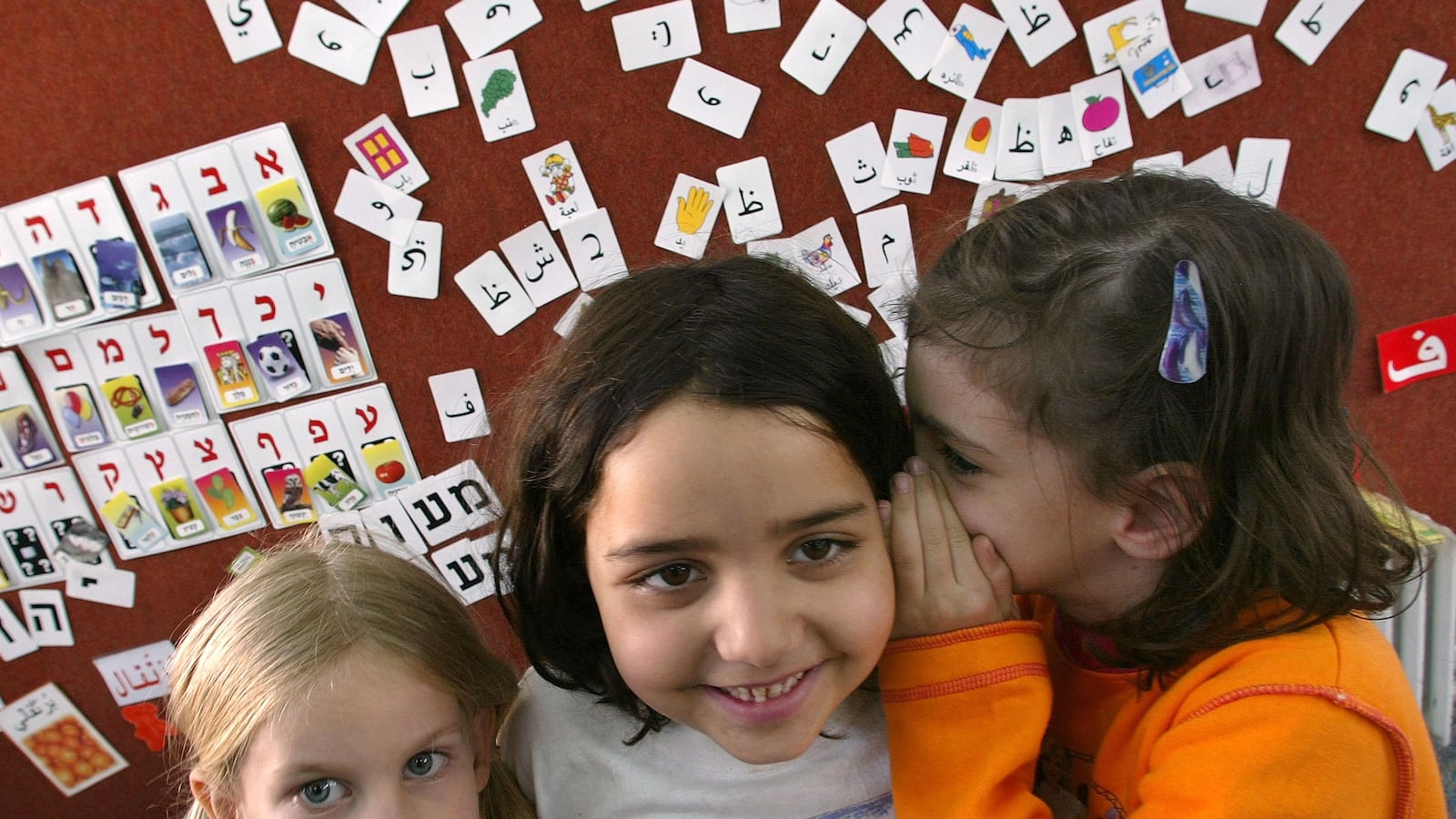I like to call them “points of light”—the positive features in our society that counter the pessimism I often feel about the future.
At the outset I want to state my opinion clearly: we Israelis are adrift and moving in the wrong direction. Our preeminent mistake is failing to bring the occupation of the Palestinian territories to an end. As a result there are daily crimes and misdemeanors, which all too many Israeli Jews are happy to ignore. This, in itself, is reason for profound regret, but it doesn’t end there. There is also the violence and the vulgarity, the racism and the exclusivity, the ever-increasing inequality, the corruption that reaches the highest levels, and (perhaps worst of all) the cynicism and the indifference.

There is, however, another Israel hiding away, almost unknown—and I’m not referring to the “high-tech miracle” that some Israelis like to boast about. I am talking very personally about an Israel where there is idealism, compassion, and limitless dedication.An example of this better Israel was on display recently when a 10-year-old Arab boy with severe kidney disease from Bethlehem, who had been treated with dialysis at a Jerusalem hospital for the past seven years, received a kidney transplant that saved his life. The donors, an Orthodox religious Jewish family, readily agreed to donate the kidney of their brain-dead son, who had suffered a tragic accident. The father knew that one kidney was going to an Arab child and said that it didn’t matter “so long as fewer children need to undergo dialysis treatments.”
Another example: my eldest granddaughter spent a voluntary “year of service” in Galilee, before her army service, as part of a Jewish-Arab group of teenagers assisting the local Arab and Jewish children with enrichment classes, drama groups, dancing and music lessons, and a host of other activities. Entering the Israel Defense Forces, the IDF, she became a soldier-teacher, working at a school in one of Israel’s most deprived towns. The bond she formed with her students was heartwarming. When she wound up her service, she gave every student a small gift package that included items she had personally crafted.
Now it is the turn of her younger sister, who also did a year of pre-army service helping under-privileged kids, and who now serves in a special army unit that guides children with special needs in trips around the country. This includes children with learning disabilities, blindness or visual limitations, families of women from shelters for battered women, and others. Most recently she spoke enthusiastically about her work with distressed children and others with Asperger’s syndrome.
And don’t let us forget that both girls carried out their good work as soldiers in the IDF, the same entity responsible for the abuses of the occupation.
Next consider my grandson, who was born in Israel but currently lives in London. He has come to volunteer at “Windows for Peace,” an Israeli-Palestinian NGO that publishes a journal in Hebrew and Arabic, jointly written, edited, and produced by junior high school pupils from Israel and the Palestinian territories.
Windows is an especially bright “point of light.” Established two decades ago by an Israeli, but from the start a joint Israeli-Palestinian venture based on complete equality, Windows—nothing to do with Microsoft—is now running into financial difficulties. The current mood of apathy in both Israel and the Palestinian territories makes it difficult to raise money for the journal, the joint movie projects, the art exhibitions, the classes, meetings, “days of fun,” and other activities that they persist in organizing together. Many people here in Israel no longer believe in the across-the-divide friendships that they are trying to foster and have stopped giving their support, but the Windows team is not giving up.
My 16-year-old grandson recorded a very positive impression. He wrote:
Reading through the English translations of the magazines was a great educational experience. I was impressed that Israeli children my age were able to discuss such complex political issues which started decades before they were born. They had such a great wealth of knowledge, better than a lot of English adults and teenagers, whom I had heard speaking about the conflict.
On the first day I met Re’em, an Arab-Israeli girl from Jaffa. Meeting and asking Arab-Israelis about their life was something I’d never done before and really helped me to understand the reality of the situation in Israel, the Arab view on it, and what everyday life was really like for children living in Israel.
I now know much more about the real issues of the conflict than I did before. Windows to me also represents hope. Children are the future of the country, so, if they communicate, maybe there can be peace in the future. My father always says that the Hebrew words for violence and silence come from the same root. Windows has ended the silence between at least some Jewish and Arab children, so maybe the violence can also end one day.
It is possible to write about many other examples of good things happening in Israel, including projects where Israelis and Palestinians cooperate in friendship, but let’s leave it there. Please don’t get the idea that I have joined the “Israel is not as bad as it’s painted” crowd. In far too many ways Israel is just as bad as it’s painted, and that is reflected in (rightly) critical reports published both in Israel and around the world. At the same time, positive things are happening here also—albeit less extensively reported.
It is difficult to be optimistic at this time, but there are points of light in the darkness, and they should give us reason for hope.






